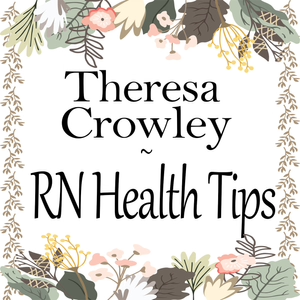
“Academic Activism” In Southeast Asia, With SHAPE-SEA’s Joel Mark Barredo
12/15/22 • 24 min
What is ‘academic activism?’ What responsibility, if any, do scholars have for engaging outside of academia, with the public and with marginalized communities in particular?
Free to Think speaks with Joel Mark Barredo, the Executive Director of SHAPE-SEA, the “Strengthening Human rights and Peace Research and Education in ASEAN/Southeast Asia” program. SHAPE-SEA is a regional programme for and by human rights and peace scholars and institutions engaged in dialogue, research, and advocacy about threats to academic freedom and human rights in Southeast Asia.
What is ‘academic activism?’ What responsibility, if any, do scholars have for engaging outside of academia, with the public and with marginalized communities in particular?
Free to Think speaks with Joel Mark Barredo, the Executive Director of SHAPE-SEA, the “Strengthening Human rights and Peace Research and Education in ASEAN/Southeast Asia” program. SHAPE-SEA is a regional programme for and by human rights and peace scholars and institutions engaged in dialogue, research, and advocacy about threats to academic freedom and human rights in Southeast Asia.
Previous Episode

“Empathy is Active.” Henry Reese, on Salman Rushdie, City of Asylum, and the “Reader Effect.”
In 1997, Henry Reese and his wife, Diane Samuels, were at a public talk by writer Salman Rushdie, and inspired by his call for communities around the world to offer sanctuary to exiled writers. They "kicked each other under the chair" and thought, why not? Six years later, they founded the City of Asylum, Pittsburgh, a multi-unit residency program that has welcomed exiled writers and artists from China, Syria, Bangladesh and beyond.
Twenty-five years later, Reese was invited to interview Rushdie at the Chautauqua Institute Amphitheater. Just as the interview was about to begin, Rushdie was violently attacked. Reese has described the audience’s rushing to the writer’s aid, attributing it to what Reese calls the “reader effect” – a real time demonstration of how reading literature and sharing stories builds empathy and meaningful community.
Next Episode
![undefined - “There Were No Fatalities. . . [But] If This Happens Again, I Am Not So Sure.” Discussing The Forcible Violation Of The Universidad Nacional de San Marcos, Lima, Peru, With Salvador Herencia-Carrasco](https://storage.googleapis.com/goodpods-images-bucket/episode_images/d43f7392b971f0d99cfd874f82c9149afa590465806cd47cb7bf8a91831ec206.avif)
“There Were No Fatalities. . . [But] If This Happens Again, I Am Not So Sure.” Discussing The Forcible Violation Of The Universidad Nacional de San Marcos, Lima, Peru, With Salvador Herencia-Carrasco
On January 21st, police forcibly entered the Universidad Nacional Mayor de San Marcos in Lima, Peru, arresting over 200 people including students pulled from their dormitories. Free to Think speaks with Salvador Herencia-Carrasco about his work with colleagues inside and outside Peru to free students from unlawful detention and to defend academic freedom and university autonomy.
Hernencia-Carrasco is director of the Human Rights Clinic of the Human Rights Research and Education Centre at the University of Ottawa, Canada, and leading member of Coalition for Academic Freedom in the Americas (CAFA).
If you like this episode you’ll love
Episode Comments
Generate a badge
Get a badge for your website that links back to this episode
<a href="https://goodpods.com/podcasts/free-to-think-podcast-491587/academic-activism-in-southeast-asia-with-shape-seas-joel-mark-barredo-65271438"> <img src="https://storage.googleapis.com/goodpods-images-bucket/badges/generic-badge-1.svg" alt="listen to “academic activism” in southeast asia, with shape-sea’s joel mark barredo on goodpods" style="width: 225px" /> </a>
Copy




